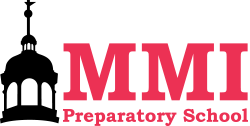By Madison Below
School Counselor
Learning good study habits in middle school assists students well into their high school years and beyond. By understanding how to manage time, information, and materials, students gain the skills they need to be organized, efficient learners who have a toolkit of strategies for completing their homework on a nightly basis. This leads to them being better equipped to tackle assessments in the classroom and can reduce test anxiety while increasing confidence and competence.
Middle school should provide a supportive atmosphere for students to learn effective study skills with the help of their peers and teachers. Students should be encouraged to practice the following good study habits:
- Master time management – Outside of school, students are often busy with extracurricular activities, jobs, and family responsibilities in addition to completing homework and studying. Students spend an average of 35 hours per week in class, but it is critical that they use their time outside of school just as wisely. Learning how to use time in an effective manner and avoid distractions are skills that take practice, but are great assets to being a successful student when mastered.
- Use a planner – Students are encouraged to use a planner to record their nightly homework, long-term projects, and upcoming tests and quizzes. Planners, calendars, and dry erase boards assist students in tracking assignments and thus lead to improved time management.
- Organize materials – Having an organized backpack, locker, and study space at home assist students in forming successful study habits. Unfortunately, it’s not uncommon for students to tell me that they completed an assignment, but managed to misplace it before it could reach their teachers’ hands. Such students may benefit from color-coded folders, notebooks, or bins at home dedicated to completed homework. Becoming organized can save valuable time.
- Practice good note taking – When students work diligently in the classroom, they are better able to know what to study and how to study at home. Effective listening strategies, practical note taking skills, and following directions closely all aid students in managing critical information. If students are visual learners, they may benefit from writing their notes in different colored pens or on colored index cards. Also, it may be helpful to rewrite notes taken in class every night as a form of review.
- Review notes daily – Instead of cramming the night before a test, students should get into the habit of reviewing their notes for each class nightly. This study habit is especially helpful with vocabulary words and learning a new language, as it allows students to study terms in manageable chunks. This reinforces students’ learning and builds toward mastery of the subject.
- Create study guides and flash cards – By going through class notes, handouts, and textbooks and writing down the pertinent information in the form of a study guide, students will be better prepared for tests. They can then use these study guides to quiz themselves and to gauge how well they know the information. Reading and re-writing the most important definitions, concepts, and themes helps imprint this information in students’ brains. Similarly, writing flashcards and reviewing them either on their own or with a peer or parent is an excellent study strategy.
- Study with a partner – Enlisting the help of a friend or parent to study not only makes reviewing more fun, but it enhances what students have learned while studying on their own. It can be especially beneficial for a student to act as the teacher and to teach their parents what they learned in class that day.
- Take breaks – Taking scheduled, short breaks while studying not only helps prevent fatigue, but it better allows the brain to retain information a student has been studying. It may be helpful to set a timer so that breaks don’t extend beyond five to ten minutes. When returning from a break, students should review the information they previously studied before moving onto something new.
Honing these study skills can prevent students from becoming discouraged and overwhelmed. It is never too late to learn these skills, as they often become second nature when students are persistent and practice them daily. Developing good study habits not only improves schoolwork, but it equips students for the rigors of college work and beyond.

